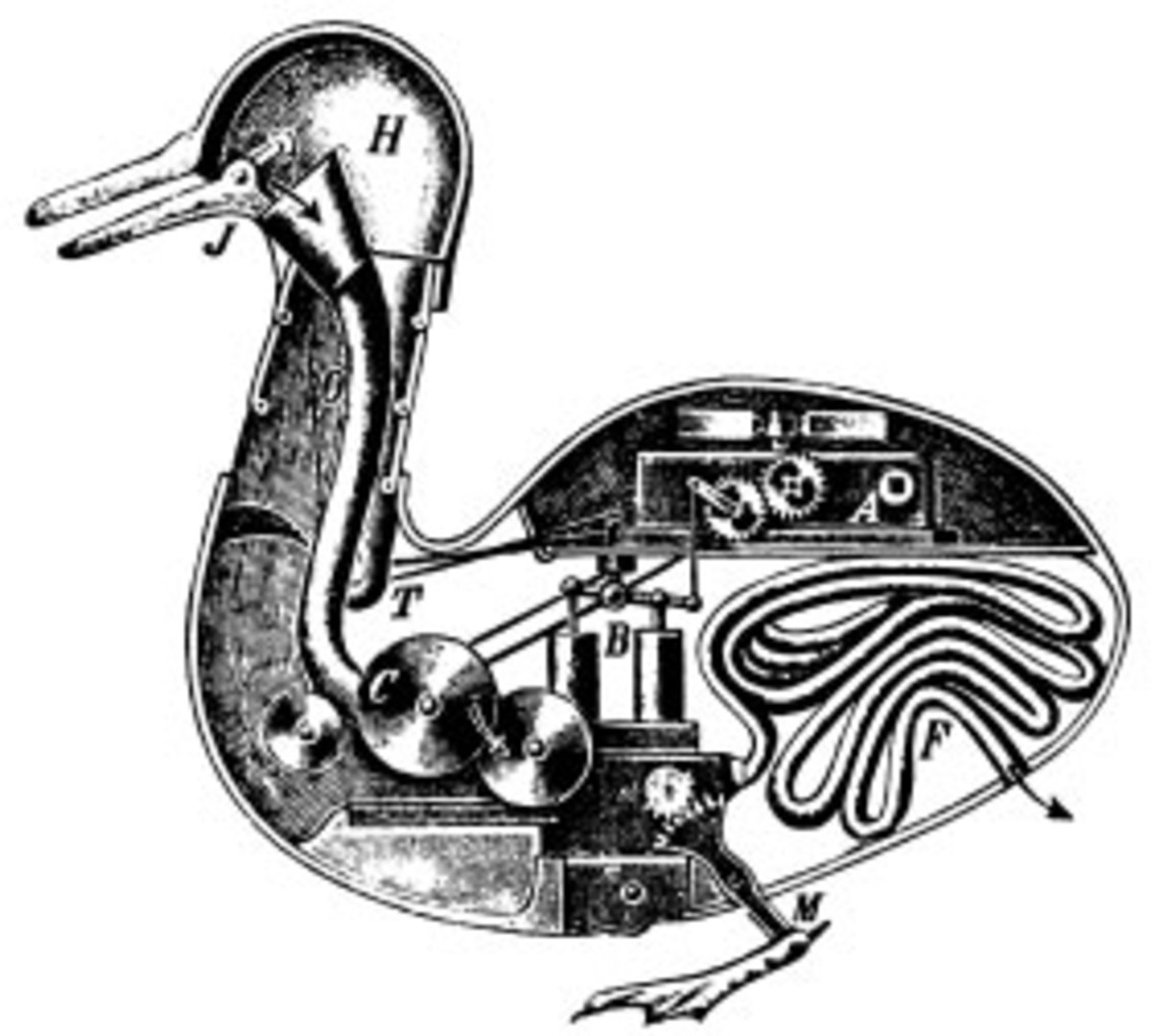Is it Okay to Use Animals In Research?
Animals used in medical research are tortured and abused. I contend that far too many animals are used needlessly in repetitive research or for instructional purposes. One might rightfully ask, “Are so many experiments required to produce the benefits we seek from such research?” In order to understand why it is that such experiments are tolerated in our society, it is important to understand human conceptions of how animals ought to be treated, and where these beliefs originated. Furthermore, it is helpful to identify why many humans feel as though it is morally permissible to conduct experiments on animals, but similar experiments on humans would be immoral and impermissible. Also, is such a viewpoint tenable that holds humans in such high regard? Finally, it is important to determine whether there are other alternatives to the use of animals in medical research.
To begin to understand why it is that humans allow the mistreatment of animals in medical research, it is helpful to know how humans have historically perceived the relationship between themselves and animals. For Christians, the Bible teaches in its opening pages:
The fear and dread of [Humans] will fall upon all the beasts of the earth and all the birds of the air, upon every creature that moves along the ground, and upon all the fish of the sea; they are given into your hands. Everything that lives and moves will be food for you. (Bible, p. 18)
For some, this passage clearly establishes the fact that humans have been placed in a superior position to animals, and that we have complete use of them for our food. Furthermore, the Bible teaches that man is made in the image of God, and only humans possess a soul. These facts would appear to be advantageous for people trying to justify a perceived superiority over animals. That is, animals are not afforded these blessings from God; therefore they are of lesser importance. There is also a natural order to things in life: a food chain exists where animals rank above plants, and humans rank above animals. Thus, humans are understood to occupy a superior position in the “natural” order of things. But these historical or natural justifications for the inferior role of animals in relation to humans do not contain justifications for the mistreatment or abuse of animals. For instance, the Bible only says that animals are for man’s consumption, not for any use we see fit.
However, of the many philosophers and theologians that have taken positions on this subject, most have tended to adopt a liberal interpretation of the obligations we have toward animals. For instance, Aquinas asserted, “…[animals] are intended for man’s use in the natural order. Hence it is no wrong for man to make use of them, either by killing them or in any other way whatever” (Rachels, p. 97). This would appear as a strong endorsement for those who support medical research on animals. Similarly, Kant argued that the purpose of animals is to serve “…merely as means to an end. That end is man” (Ibid., p. 130). In medical research, the end being served would be the advancements made in furthering human health. The means of achieving this end are – at least in part – through experimentation on animals. As philosopher James Rachels notes, animals have also been rejected from moral consideration due to a variety of factors beyond the theological, including the inability to speak, and lack of reason (p. 98). These assertions will be addressed further on.
In stark opposition to the claims made above, other philosophers have argued that humans do have an obligation to treat animals humanely. Bentham dismissed the notion that animals should be denied moral consideration. Whereas those in the past dismissed the rights of animals on theological or other grounds, Bentham argued that because animals were capable of suffering, their interests need to be taken into account. As Bentham stated: “The question is not, Can they reason? nor Can they talk? but, Can they suffer?” (Singer, p. 8). This argument would certainly reinforce those who do not support the use of animals in medical research by providing a solid justification based on the fact that animals can and do suffer in experiments.
What has been shown here is that human understanding of their relationship with animals can be seen in at least two different ways: 1) We may see animals as having been placed on earth by God for us to use as we see fit; thereby justifying the lack of moral consideration given to them, or; 2) Animals are due moral consideration because of their capacity to feel pain. Depending on which doctrine is accepted, the use of animals in medical research may or may not be morally permissible. Other reasons, too, may exist that might allow us to give animals moral consideration on different grounds other than their ability to feel pain.
Charles Darwin introduced the theory of evolution in his 1859 book On the origin of Species. The theory of evolution roughly asserts that species evolve over millennia into new variations of their former species and can even evolve into new species altogether. As one can plainly see, such a theory directly conflicts with religious thoughts on the creation of humans. The Bible teaches that God created man (sic) in his own image; it makes no mention of the fact that humans would evolve from a primitive species into the rational beings we are today. But the theory of evolution claims that there is evidence to show that humans may not have remained unchanged for millennia, but rather, we may have evolved from apes. If the theory of evolution were proven true (as much as it would be possible to prove that God created the Heavens, the Earth, and humans), then this would have dramatic moral implications in our dealings with animals. For instance, if humans are understood to be nothing more than sophisticated apes, what right would we have to claim that we deserve a higher moral status than they do? It would appear that we would have no right to do so. Thus one might construct an argument in support of banning medical research on animals using evolutionary principles as follows:
1) Experiments on animals used for medical research are cruel, inhumane, and cause a great deal of unnecessary suffering.
2) We consider it unacceptable to submit human beings to experiments that are cruel, inhumane, and cause unnecessary suffering.
3) Humans evolved from animals, and so, are but one species of animal, thereby deserving of no higher moral status than animals.
4) Therefore, to remain consistent we ought to consider it unacceptable to submit animals to such cruel experiments.
It would seem that by claiming that humans are but one species of animal, would lend support to the argument, “differences between animals and humans are inconsequential.” However, many over the years have claimed that humans are due special moral status because of special character traits found only in humans.
Many philosophers over the years have asserted that humans are due the utmost moral consideration due to a number of factors. As discussed earlier, some of these factors would include religious reasons, such as “man was made in the image of God,” or “only man has an immortal soul.” But many of these religious-based reasons for accepting the special place occupied by humans can be dismissed if we are more accepting of the theory of evolution. The theory of evolution puts into question the entire Biblical version of the creation of the universe and our place in it. For years, we understood ourselves to be at the centre of the universe, and that everything on Earth was for our use. But the theory of evolution tells a different story: we evolved from primitive beings with no higher plan in place to guide us through life. That is, our existence on earth is not part of God’s great plan.
Even if you are not comfortable with accepting an evolutionary perspective or relying on arguments from a religious point of view, many have claimed that there are additional reasons as to why humans are unique: humans have certain “special” characteristics unique to themselves. These factors are what make using animals in medical research justifiable.
To begin, humans believe we are different from animals in many significant ways. First, Aristotle claimed that man alone is rational. This was taken by some to mean that because mere animals were not rational, they were not due moral consideration. But in order for this argument to justify why humans are morally superior to animals, one would have to accept the fact that humans who are not rational (e.g. infants, mentally challenged) are due no moral consideration (or at least no more than that given to animals). This conclusion will not be acceptable to any reasonable person. Therefore, if this justification fails, there must remain other reasons for our special moral status other than our rationality.
Similarly, arguments such as, “humans are simply more intelligent than animals,” fail for the same reasons as arguments of rationality do. Peter Singer summarizes a number of arguments that all have been used to place human rights above animal rights. Some of these include autonomy, respect for others, and alternative conceptions of justice (Singer, p. 277). All of these justifications fail in providing reasons why humans deserve more moral consideration than animals, because not all humans possess all these characteristics listed above, yet we are willing to grant all humans moral consideration. We would not subject humans with a low intelligence level to the same tests we subject animals to. Nor would we subject those who were not able to exercise their autonomy to such medical experiments. If the moral status granted to humans is to remain intact, some real distinction must be made between human and non-human animals, otherwise the practice of medical experiments is simply discriminatory.
Some dismiss the moral relevance of animals on the basis that animals do not have rights. For instance, Carl Cohen argues that animals do not have moral rights because,
[rights] are in every case claims, or potential claims, within a community of moral agents. Rights arise, and can be intelligibly defended, only among beings who actually do, or can, make moral claims against one another. Whatever else rights may be, therefore, they are necessarily human; their possessors are persons, human beings. Cohen, p. 281
Most would agree that rights could only exist if there is someone to recognize these rights. For example, it would be pointless if one were to make a claim that one had a right to be provided with the basic necessities of life if one were stranded on a desert island dying of starvation. This is because rights are only useful if they can be exercised, recognized, and responded to by others. But critics of Cohen, such as Edwin Converse Hettinger argue that just because the ability to recognize and claim rights rests solely with humans, does not mean that only humans should enjoy these rights (Hettinger, p. 288). Hettinger cites the fact that infants do not have the ability to make a rights claim, nor can they recognize the rights of others to do so, yet they are given rights. Even when Cohen qualifies rights as having the capacity to make rights claims, Hettinger is able to dismiss this by saying not all humans possess this capacity. For example, mentally challenged humans do not have the capacity to make rights claims. Therefore, ought we to conclude mentally challenged human beings are due no rights? Certainly most people would not be supportive of this argument. All would agree that the mentally challenged do have rights, and justifiably so. To respond to these criticisms, Cohen says that humans are of a “kind,” and are not to be singled out individually for what they may lack. He goes on to say, “What humans retain when disabled, animals have never had” (p. 283). Hettinger, in turn, responds by stating that some animals can perform “quasi-moral” functions: “Dogs, for example, can be obedient, protective, and solicitous, while there are severely retarded humans who could not achieve these minimal moral duties…”( p. 288). Hettinger concludes by saying that we should not dismiss so easily the fact that some animals are better able to perform moral functions than some humans.
I would add an additional point to Hettinger’s reply: If dogs, and many other animals are capable of “quasi-moral” functions, would not they too be considered “of a kind,” as Cohen argues that humans are? That is to say, if most humans have the capacity for moral behaviour, but some do not, then those that do not, still deserve moral consideration because they are “of a kind” (i.e., human kind). The same argument can be made for animals: Some animals have a capacity for moral behaviour, but some do not; but because of the fact that some animals do, all are afforded moral consideration because they are “of a kind.” It seems reasonable to think that if humans – as an entire species – are to be given moral consideration despite any flaws certain individuals might have, animals should be given the same benefit on these same grounds.
The utilitarian position offers, I think, the most convincing argument for what our obligations are towards the use of animals in medical research. That is, it offers sufficient reasons for justifying why humans ought to consider the interests of animals. First, utilitarianism seeks to produce the greatest good for the greatest number, with the interest of all those concerned counting equally. Bentham believed utilitarianism did not necessarily limit itself to humans alone, but could, and should, be extended to include animals as well (Singer, 276). This conclusion was justifiable for Bentham due to the fact that animals can suffer, therefore, they have an ability to have their happiness either increased or decreased. Consequently, their interests should be taken into account when performing the utilitarian calculus.
This argument is adopted by contemporary utilitarian philosopher Peter Singer. Singer supports Bentham by agreeing that, because animals have the ability to suffer, we ought to include their interests in our moral deliberations. Singer defends against critics who might be inclined to say, “suffering is just some arbitrary justification that is used to defend animals, similar to the arbitrary reasons that have been used to defend the uniqueness of humans (i.e., rationality, intelligence, speech, etc).” Singer responds by stating: “The capacity for suffering and enjoyment is a prerequisite for having interests at all, a condition that must be satisfied before we can speak of interests in a meaningful way” (p. 276) Singer, here, has shifted the focus from “rights” talk, to talk of “interests.” Singer deliberately avoids the kind of rights talk that others such as Cohen rely upon to make their argument. Singer describes rights talk as “…convenient political shorthand” (p. 277). That is, it is easy to defend an argument for human superiority over animals by defining rights in such a way as to include humans, but exclude animals.
To further demonstrate the fact that suffering is not simply an arbitrary reason to defend animals, and to furthermore add weight to the use of language such as interests rather than rights, Singer says, “It would be nonsense to say that it was not in the interests of a stone to be kicked along the road by a schoolboy. A stone does not have interests because it cannot suffer” (p. 276) This utilitarian argument, I believe, adds great weight to the defence of animals in general. By couching the argument in terms of interests rather than rights, the utilitarian argument is able to proceed forward and defend against the use of animals in medical research. What has not been clearly determined however, by the utilitarian argument, is the extent to which animals ought to be used in medical research.
Some might argue that an argument based on utilitarian grounds would call for an increase in the use of animals for experimentation, because more research yields greater benefits to humans. But I would argue that such critics have either simply not calculated the costs/benefit analysis of utilitarianism properly, or have dismissed the interests of animals altogether. If the number of animals used in research every year exceeds hundreds of millions, would it not be necessary on utilitarian grounds, to conclude that in order for the use of such a high number of animals to be justified, a greater amount of happiness must be produced as a result of this experimentation? That is to say, if one hundred million animals are caused a great deal of unhappiness through medical experiments, a greater number of equal beings (humans or animals) ought to experience happiness because of those experiments. If the results were otherwise, such experiments would not meet the requirements of utilitarianism, i.e., producing the greatest amount of happiness for the greatest number of beings.
Therefore, I believe using the utilitarian argument, one would have to conclude that more unhappiness, than happiness is being produced as a result of using hundreds of millions of animals used in research. This is so because of the fact that there are not hundreds of millions of people or animals benefiting from the use of these experiments on a yearly basis. I will concede that the lives of many people have been greatly increased by the knowledge we have gained through such experiments, but surely the amount of suffering that has taken place on behalf of animals outweighs the benefits afforded to humans if we accept that the interests of humans and animals are due equal moral consideration. In short, I believe utilitarians would only want medical research performed where the outcome was certain to produce a great benefit (i.e., happiness) for a significant number of people while causing the least amount of harm (i.e., unhappiness) as possible on the subject of the experiment, human or non-human.
Those who tend to dismiss the rights of animals are often the same type of critics inclined to minimize the alternatives that exist to the use of animals in medical experimentations. For instance, Cohen describes the prospects of using alternatives by saying, “No other methods now on the horizon – or perhaps ever to be available – can fully replace the testing of a drug, a procedure, or a vaccine, in live organisms” (p. 285). But Hettinger offers a more optimistic outlook. For example, Hettinger cites a study by the U.S. government looking into this issue, and offers a list of wide ranging suggestions, all of which would serve to greatly reduce the number of animals used in cruel experiments. Some of these include:
Using plants instead of animals…Teaching by demonstration instead of by individual student use of animals…Using human and animal cadavers…in vitro experimentation and computer simulation… Coordinating investigations and sharing information (to reduce duplicative experiments when necessary for validating the original research) (p. 295)
It would appear as though a wide range of options are available to us now for immediate implementation. Several of these suggestions are not dependent upon the advancement of technology whatsoever, therefore could begin to alleviate the suffering of animals immediately. In my opinion, even if one does not agree with the notion that animals ought to have rights equal to humans, we at least ought to try to minimize their suffering whenever possible. I believe the alternatives listed above offer great promise for the future of both, advancements in medical technology, and also the minimization of the use of animals in medical research.
While some may never concede the fact that animals ought to be given equal moral consideration to humans, I believe I have given credible and justifiable reasons to reduce the use of animals in medical research. First, evolutionary ethics offers a relatively new approach that might seem to challenge many of our long-held religious beliefs about our obligations towards animals. Second, Bentham’s argument concerning the fact that animals are capable of suffering, gives us a significant reason for accepting the fact that the interests of animals ought to be considered. Third, if mentally challenged humans are protected from experimentation because they are “of a kind,” then ought not animals be protected because they belong to a type of being capable of “quasi-moral functions?” And finally, the alternatives that are currently available today could go quite some distance in reducing the vast numbers of animals used in cruel, repetitive experiments. Taking all these considerations into account, I believe we ought to re-evaluate how it is that we treat animals in our day-to-day lives. Upon re-evaluation, we could conclude that the use of animals in medical research is immoral if the research being done is harmful or cruel to the animal.
Bibliography
Cohen, Carl, “The Case for the use of Animals in Biomedical Research,” in Biomedical Ethics, 5th ed. Thomas A. Mappes and David DeGrazia eds. (New York: McGraw-Hill, 2001)
Hettinger, Edwin Converse “The Responsible use of Animals in Biomedical Research,”in Biomedical Ethics, 5th ed. Thomas A. Mappes and David DeGrazia eds. (New York: McGraw-Hill, 2001)
The Holy Bible, New International Version. (Michigan: Zondervan Publishing, 1995).
Rachels, James, The Elements of Moral Philosophy (4th ed. (New York: McGraw-Hill, 2003)
Singer, Peter, Animal Liberation (New York: New York Book Review, 1975).
----------------Biomedical Ethics, 5th ed. Thomas A. Mappes and David DeGrazia eds. (New York: McGraw-Hill, 2001)








